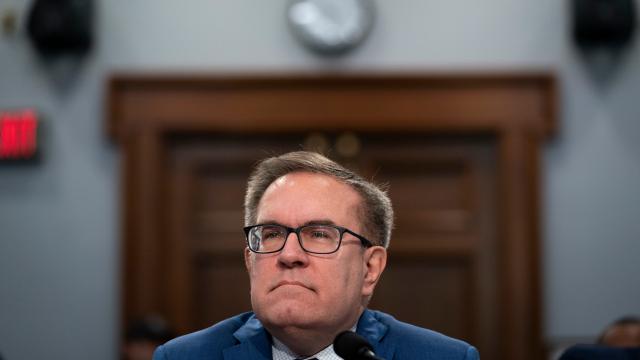The Environmental Protection Agency (EPA) issued a new draft of one of its most controversial plans, somehow taking it from bad to worse.
The new draft revises a rule first proposed by then-EPA Administrator Scott Pruitt in 2018 that would require the agency to only use scientific research based on data that’s available to the public to create regulations. The new version of the rule, which the EPA released on Tuesday evening while many of us were glued to election results coverage, would change that restriction slightly, mandating that the agency gives preference to studies in which data is publicly available but not outright limiting it to using such research.
But that doesn’t makes the rule better. Gretchen Goldman, research director for the Centre for Science and Democracy at the Union of Concerned Scientists, told Earther she sees it not as a relaxation, but as a complication that officials can use to ignore research that contradicts their political goals.
“The standards with which they would apply this are very unclear, so the administrator just has this broad authority to decide if and when it applies to exclude some piece of research when he wants,” she said. “That makes it fully political, in that the EPA wouldn’t just be looking at all available science and making decisions based on the best available science, but instead they can decide to apply this new standard and can exclude something depending on whether or not [they] agree with that science.”
The new rule is also vague, opening the door to it being applied in a variety of ways. Tuesday’s supplement would also expand the rule to cover all EPA activities, limiting not only the agency’s ability to draft new regulations, but also its ability to share “influential scientific information” from any studies with underlying data that’s not confidential.
“There’s lots of reasons that different kinds of data, data that underlies studies, aren’t public,” Gretchen Goldman,. “At the most basic level, the EPA studies threats, and to understand environmental threats…we need human health data and location data, and health and location data is protected with confidentiality protections.”
EPA Administrator Andrew Wheeler has said the rule is a step in “ensuring that the science underlying E.P.A.’s actions is of the highest quality.” Much of the health data in studies the EPA uses for rule-making is confidential to protect people’s identities, but that doesn’t make it bad data. And frankly, the EPA doesn’t need underlying data to vet a study because any study it uses to craft regulations or determine health or environmental risks is generally peer reviewed.
The rule could help the EPA to consider compromised research when it’s politically useful for them to do so. Industry-funded researchers, for instance, could simply make their underlying data public to gain favour from agency officials. In fact, that’s exactly why the whole notion of trying to pretend health data the protects privacy is “secret science” was cooked up in the first place.
It’s been well-documented that the scheme was created by the tobacco industry. In 1996, the EPA concluded that secondhand smoke “presents a serious and substantial public health impact.” In response, Christopher Horner, a lawyer to the R.J. Reynolds Tobacco Company, wrote a memo to his clients with a plan to fight back by insisting that all public health regulations be based on public data. Today, the fossil fuel industry is pushing the idea for similar reasons.
The new EPA proposal isn’t law yet. The public will have 30 days to comment on it, and Goldman said her organisation and others plan to do everything they can to fight it.
